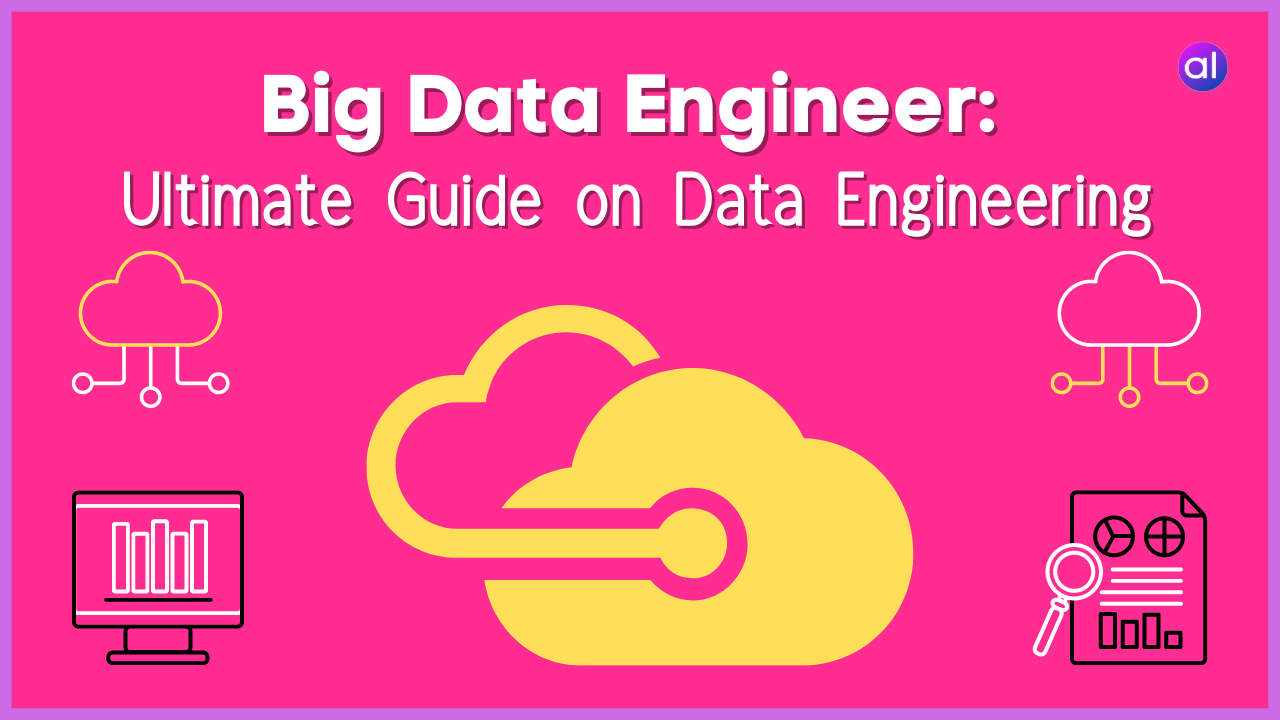In this article, you will learn about Data Engineering and What Is a Big Data Engineer? in today’s world, we also try to explain big data technologies in detail.
Big data engineers are responsible for managing and analyzing large amounts of data, They use a variety of tools and techniques to help organizations make better decisions and improve their operations.
A big data engineer is responsible for managing and manipulating large data sets in order to extract meaningful insights.
They work with big data technologies such as Hadoop and MapReduce to develop data processing pipelines and clusters. They also need to be able to work with a variety of programming languages, including Java and Python.
Who is a Big Data Engineer?
A big data engineer is a professional that helps to manage and analyze large data sets, They work with big data platforms such as Hadoop and Spark to find trends and insights that can help a business grow.
The role of a big data engineer is growing in demand, as more and more businesses are looking to gain a competitive edge by using big data.
Big Data engineers are responsible for managing and analyzing large data sets, They work with big data technologies to store, process, and extract value from data. They are also responsible for developing data-driven solutions and applications.
A big data engineer is someone who is responsible for managing and processing large amounts of data on cloud or on-premises using ETL process.
Similarly, They work with big data technologies, cloud computing platforms to help organizations make better decisions and optimize their operations.
Related Article: Who is a Data Engineer & How to Become a Data Engineer?
What Skills and Knowledge do Big Data Engineers Need?
Big data engineers need a variety of skills in order to be successful.
- They need to be able to work with large data sets, and to have a strong understanding of algorithms and data structures.
- They also need to be able to write code that is efficient and scalable.
- Additionally, big data engineers need to be good at problem solving.
- They should be able to effectively communicate with other members of the team.
- A big data engineer is somebody who is able to take all of the data that is being collected and processed and make sure that it is organized and accessible.
- They need to have a strong background in math and statistics, as well as experience in data mining, modeling, and machine learning.
- They also need to be able to work with a variety of programming languages, including Java, Scala, and Python.
What does a Big Data Engineer do?
- A big data engineer is responsible for managing and organizing large amounts of data.
- They work to make sure that data is easily accessible and can be used to make informed decisions.
- They use their expertise in data management and analysis to help organizations make the most of their data.
- Cloud Computing is a key piece of Big Data Engineering and Big data Engineer is Responsible for cloud computing.
- Big data Engineer helps With cloud-based storage and processing, so that organizations can scale their Big Data operations to meet their needs.
Related Article: Top 14 tools for Data Engineering
Big Data Engineer and Cloud Computing
Data is becoming increasingly important in our world, As our reliance on technology grows, so does the amount of data we generate.
This data can be incredibly valuable, but only if we can make sense of it, That’s where big data engineering comes in.
Big data engineering is the process of collecting, storing, and analyzing large data sets and it is highly using open source technologies like Hadoop, spark, Kafka and Paid cloud services like AWS, Azure, GCP etc.
Related Article: IaaS SaaS PaaS in Cloud Computing-Which Is Powerful?
Big data Engineering can be done on a variety of platforms, but cloud computing is becoming increasingly popular, Cloud computing allows businesses to quickly and easily access large amounts of data.
As a big data engineer, you are responsible for developing, managing and maintaining big data solutions, You will work with a variety of data-related technologies, including Hadoop, MapReduce, Spark and Hive.
Cloud data Engineer will also be responsible for managing and deploying big data solutions to the cloud, As a cloud computing engineer, you are responsible for developing, managing and maintaining cloud computing solutions.
You will work with a variety of cloud-related technologies, including Amazon Web Services (AWS), Microsoft Azure and Google Cloud Platform (GCP), You will also be responsible for managing and deploying cloud computing solutions to the cloud.
Related Article: Top 10 Benefits of Cloud Computing.
What are the Job Prospects for Big Data Engineers?
The job prospects for big data engineers are good. According to the Bureau of Labor Statistics, the number of jobs for big data engineers is expected to grow by 28% between 2016 and 2026.
This is much faster than the average growth rate for all jobs, There are several reasons for this high demand for big data engineers.
First, businesses are collecting more data than ever before. This data can be used to improve products and services, target ads, and make other business decisions.
Second, businesses are using big data technologies to analyze this data. This helps them to find trends and patterns that they would not be able to find with traditional data analysis methods.
If you’re interested in big data and want to become a big data engineer, there are several things you need to know.
- This is a rapidly growing field, and there is a lot of demand for engineers with experience in big data.
- Big data engineering is a complex field, and there are a variety of skills you need to be successful.
- It’s important to keep up with the latest trends and technologies in big data, so you can stay ahead of the competition.
- They can take large data sets and turn them into useful information, This makes them a valuable asset to any business.
- Big data engineers are in high demand because they are skilled in both big data technologies and traditional data analysis methods.
What are the Career Opportunities for a Big Data Engineer?
A big data engineer has a variety of career options available to them
- They can work for a company as a full-time employee, or they can work as a consultant.
- They can also work for a government agency or a non-profit organization.
Some of the career options for a big data engineer include:
- Working as a data scientist
- Working as a data analyst
- Working as a business intelligence analyst
- Working as a software engineer
- Working as a database administrator
What are the Long Term Career Options for Big Data Engineers?
There are many career options for big data engineers. like Large Organizations, Startups, Government Agencies, NGO etc.
One option is to become a big data engineer for a large company, In this role, you would be responsible for managing and analyzing the company’s big data.
You could also become a big data engineer for a startup. In this role, you would be responsible for managing and analyzing the startup’s big data.
Another option is to become a data scientist. In this role, you would use your big data engineering skills to analyze data and find trends.
So if you’re looking for a career that involves managing and analyzing large data sets, then a job as a Big Data engineer may be right for you.
Related Article: How to Face Data Engineering Interview Questions and Crack the Interview?
Conclusion
A big data engineer is a professional who is responsible for managing and manipulating large data sets, This includes collecting, organizing, cleaning, and analyzing data to help organizations make better decisions.
Big data engineers must have a strong understanding of data mining techniques and algorithms, as well as experience working with big data platforms and tools.
A big data engineer is responsible for managing and organizing large amounts of data called big data and They work to make sure that the big data is easily accessible and can be used to make informed decisions.
They use their expertise in data management and analysis to help organizations make the most of their daily transactional data or historical data.
If you are interested in pursuing a career as a big data engineer, it is important to have strong technical skills and experience working with big data platforms and tools. The field of big data is growing rapidly, so there are many opportunities for career advancement.
Related Article: Top Differences between AWS vs Azure vs Google Cloud

Meet Nitin, a seasoned professional in the field of data engineering. With a Post Graduation in Data Science and Analytics, Nitin is a key contributor to the healthcare sector, specializing in data analysis, machine learning, AI, blockchain, and various data-related tools and technologies. As the Co-founder and editor of analyticslearn.com, Nitin brings a wealth of knowledge and experience to the realm of analytics. Join us in exploring the exciting intersection of healthcare and data science with Nitin as your guide.










